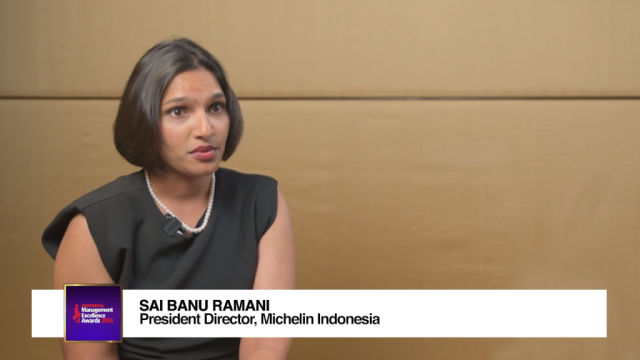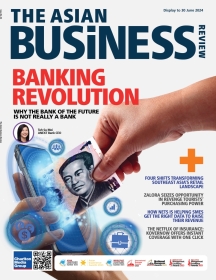
Many companies yet to take ‘full advantage’ of data despite momentum
KPMG Asia Pacific Head of Technology, Media & Telecommunications Darren Yong said that unlocking data assets within businesses can create exponential value and opportunities for companies.
Darren Yong is currently KPMG Asia Pacific’s Head of Technology, Media & Telecommunications. He is heading the Client & Market Development for the region and is also a part of the company’s Asia Pacific Leadership team.
A highly accomplished executive with over 20 years of experience in telecommunications and information technology, Yong is passionate about bringing emerging technology solutions to clients. He has led key technology engagements in KPMG—covering strategy, data migration, cloud, and blockchain, amongst others.
He has supported clients across telecommunications, technology, banking, insurance, life sciences, energy, and retail sectors. His expertise includes business strategy, transformation, cyber security, data and analytics, and cloud.
As one of the esteemed judges for this year’s Asian Technology Excellence Awards, he has provided his insights on the areas within companies that are in most need of digital transformation and innovation. Yong has also advised industry stakeholders on better approaching business transformation amidst a recovering economy and a shift to digital.
Can you tell us about your passion for technology and how it has impacted you as the Head of Technology, Media & Telecommunications, KPMG Asia Pacific?
My passion lies in understanding how technologies can make a sustainable impact in the organisations we work with. We often see emerging technology missing the mark when it comes to commercial impact and it may take decades for companies to fully see the benefits of technology. Balancing ideation and commercialisation is an area that drove me to be more curious about new technology and to seek ways in which this can impact the way companies operate.
This has inspired me to be more open to new ideas and opportunities that I may have previously not considered. The changing landscape has encouraged me to think about how nations educate their workforce in ways that may provide new opportunities to innovate and incubate the next unicorn for their nation!
What areas within a company are in most need of digital transformation and innovation? What tech developments are your clients currently working on?
There are considerable opportunities across the board, which are linked to fundamental changes in their operation, as companies move to a digital-first approach. They may focus their digital transformation on areas that may no longer need human intervention or those with multiple processes that can be streamlined or removed if systems are on common platforms.
The introduction of data science and AI into businesses can also leverage and unlock the data assets within their business – creating exponential value and opportunities as businesses look to capture more market share or create more customised experiences for their customers.
Across the clients I work with, I see key areas including the use of blockchain technology to change how payments work globally from days to seconds; the use of data and data mesh to leverage monetisation and customer data in ways that can provide new, real-time instances to engage; and the need to evolve and change organisations to be more creative in how they look at problem-solving.
How can companies better approach business transformation amidst a recovering economy? What strategies would you advise them?
In times of crisis and disruption, there are also opportunities. Those that look to adapt to new ways of working can outperform their peers. In a recent survey that KPMG conducted globally with over 300 executives globally, we saw that 75% of executives believed that using enterprise data more effectively could radically transform their business models. However, it also uncovered that 57% of respondents did not have an enterprise-level data strategy and only 32% fully utilised customer data. Meaning to say, whilst we are seeing great momentum in technology and other sectors, many companies still have yet to take full advantage of data within their organisations. We continue to work with clients as they ideate and look to new business models to capitalise on the market opportunity. Given the constant changes in the market, the speed of change is increasing which both poses continued opportunities and threats in the market.
With more transactions moving online, how can companies build stronger, more secure systems to protect their assets?
Cyber threats continue to rise and we see a continued increase in the number and severity of instances. As our clients continue to digitise and look to work with data in broader ways, there is an increasing need to address these threats. There are a number of key areas that we see Boards and Senior Management are looking to improve on. These include more rigorous and frequent reviews of their policies and governance strategies, better development of real-time incident response mechanisms, and stronger technology practices. In order to reduce risks, it is important that their people and teams are kept up to date with threats and instilled with practices that secure their assets and information.
Core to the ability to address these concerns is elevating this agenda to the board level, ensuring that all are responsible for managing their security and ensuring technology and policies are more regularly reviewed and up to date.
How do you know an emerging technology solution is here to stay? How do you go about presenting it to clients?
There are a number of ways emerging technology can be seen as a technology that requires long-term investments. Signals in the market that include Private Equity and Incubator funds are early indicators of where mass adoption from enterprises and customers may take place. We have seen how platforms like TikTok and Twitch have become more mainstream in both B2B and B2C interactions or blockchain technology in areas such as decentralised finance and payments. Therefore, having the abilities to observe the global trends and to analyse the market trends are key to creating successful strategies.
With the speed and pace of innovation and the move to hyperlocal engagement models, it’s becoming increasingly difficult to predict exactly where the next unicorn will come from. However, what we know is innovation is rife. In KPMG’s thought leadership on Asia Pacific’s next Emerging Giants, we looked at over 6,000 start-ups at the valuation of $500m and below and found over 120 different emerging technology categories – covering areas such as NFTs, Blockchain Real Estate, and sustainable fashion. Whilst not all 6,000 companies will become unicorns, we know many will.






















 Advertise
Advertise








